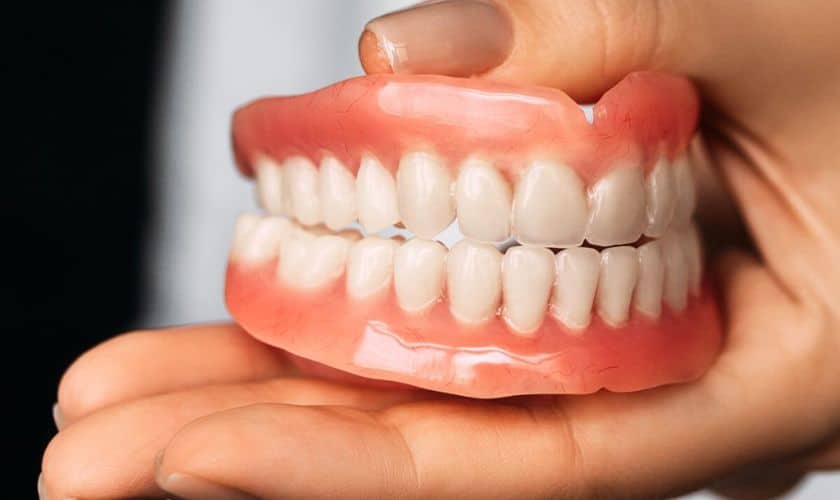“Are you feeling anxious about your upcoming tooth extraction? Don’t worry, immediate dentures can ease your concerns and have you smiling confidently in no time! In this blog post, we’ll delve into how immediate dentures work and the many benefits they can bring to your oral health. So sit back, relax, and let us guide you through this transformative dental solution.”
What are Immediate Dentures?
Just as people who have braces need to be careful not to bite their tongues, those who have tooth extraction surgery also need to be very careful not to bite their lower lip. This is especially important if the patient has immediate dentures on. If the denture sits on top of the lip and is bitten, it can cause major bleeding and crust over the tissue. In such cases, the dentist may choose to remove the denture altogether and re-insert it later after it has healed.
Benefits of Immediate Dentures
There are many benefits to wearing dentures right after teeth are extracted. Dentures can provide relief from certain pain and discomfort. They also reduce the need for antibiotics, which can help to prevent potential infection. In some cases, dentures may even allow someone to resume their normal activities more quickly than if they were wearing false teeth.
What to Expect After an Extractions Procedure
Usually, after having a tooth extracted, patients are concerned about the restoration process and how their smile will look. This is especially true if the extraction was done by a general dentist rather than a specialist in oral surgery. However, with immediate dentures, many of these concerns can be alleviated.
The first step in restoring your smile after a tooth extraction is to get an estimate from a qualified dental implant specialist. They will need to know what type of restoration work you would like and which implant would be best suited for your needs. Next, you will need to visit an orthodontist who can create the necessary brackets to support your new dentures. Once everything is finalized, your new dentures should be ready for you to wear!
The Process of Replacing Teeth with Immediate Dentures
Many people are worried about the process of getting dentures after teeth are extracted. Dentures are inserted into the space left by the missing teeth, and they provide a snug fit that can alleviate many of the concerns people have about being able to eat properly after having teeth removed. In most cases, dentures can be fitted within a few hours after surgery. Here are a few tips for taking care of your newly installed dentures:
1. Brush your dentures regularly using a soft toothbrush and toothpaste.
2. Always store your dentures in a clean, dry place.
3. Avoid eating anything icky or crunchy while your dentures are still healing – this will only make them difficult to remove!
Final Thoughts
So, if you have immediate dentures, there are a few potential concerns that may be alleviated. First and foremost is the discomfort of wearing dentures. Secondly, if a person has had extensive tooth loss or extensive gum surgery, they may not be able to close their jaw sufficiently to get comfortable with using regular dentures. People who are new to wearing dentures may find it difficult to eat soft foods due to the lack of teeth support.
But worry not! There are endless ways for individuals to enjoy eating without having to worry about how their dentures feel or look. Beyond just finding foods that are soft enough for comfort, there are also plenty of options that can provide more stability when eating crunchy or sticky foods. For example, people can use chopsticks or forks with embedded rubber tips to help reduce the chances of food sticking to the denture and causing discomfort. Furthermore, straws and sippy cups can be used in place of actual drinking glasses so that liquids don’t have a chance to seep down into the denture and cause irritation.
Dentures are typically needed by people who have lost some or all of their natural teeth due to tooth decay, gum disease, or injury. Dentures can also be used to replace teeth that have been extracted due to damage or decay.
If you are missing teeth, dentures may be a good option for you. It’s important to consult with a dentist to determine if dentures are the best choice for your specific needs. They will assess your oral health and recommend the appropriate treatment.
The lifespan of dentures depends on a variety of factors, including the quality of materials used, how well they are cared for, and how much they are used. On average, dentures can last between 5 and 10 years before needing to be replaced.


